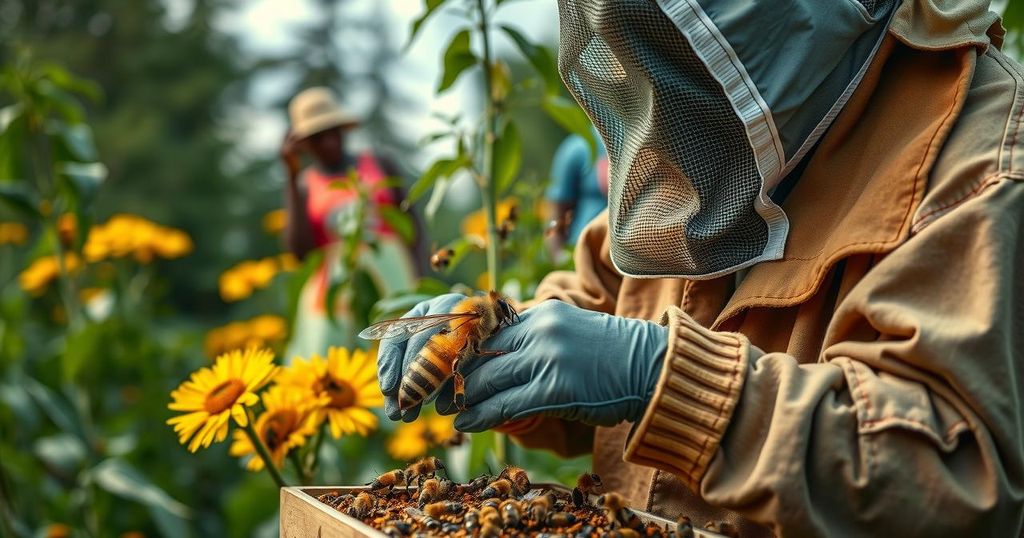Beekeeping: A Sustainable Livelihood for Climate Resilience in Kenya
Communities in Kenya’s drylands are increasingly affected by climate change, leading to unsustainable farming and livestock practices. In response, conservation experts are promoting beekeeping as a resilient alternative livelihood. This initiative helps communities adapt to changing weather patterns and supports environmental sustainability. Through beekeeping, these communities can improve their economic prospects and enhance local biodiversity.
In Kenya, communities residing in dryland regions face significant challenges stemming from climate change, particularly through persistent droughts and unexpected floods. These conditions have severely impacted traditional livelihoods such as agriculture and livestock rearing, often leaving these practices unsustainable. In response, conservation specialists are facilitating the adoption of beekeeping as a viable alternative. This practice not only offers economic benefits through honey production but also helps to foster environmental resilience by supporting local biodiversity. By integrating beekeeping into their livelihoods, these communities can enhance their adaptive capacities and promote sustainability, even amidst the challenges posed by climate change.
Climate change poses severe threats to livelihoods, especially in arid and semi-arid regions such as those found in Kenya. The U.N. Environment Program identifies communities living in these drylands as particularly vulnerable, as they experience increased occurrences of drought and flooding. Traditional ways of life heavily reliant on farming and livestock are increasingly jeopardized. Thus, there is an urgent need for communities to explore alternative methods that are not only climate-resilient but also economically feasible in the long term. This has led to the promotion of beekeeping, a practice that can yield multiple benefits for the environment and local economies.
In summary, beekeeping emerges as a crucial strategy for Kenyan communities grappling with the impacts of climate change. By adopting this alternative livelihood, these communities not only enhance their economic stability but also contribute to environmental resilience. As climate scenarios continue to shift, fostering practices like beekeeping will be essential for ensuring sustainable development and the preservation of traditional livelihoods in the face of adversity.
Original Source: www.voanews.com




Post Comment